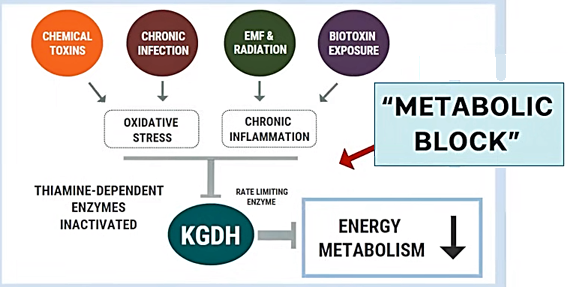Thyroid overdose
-
Hello, I used haiduts TyroMix last summer. My T4 was in middle of range and i felt bit sluggish. I took 2 drops over 9 days. During this time i developed mild dysautonomia when standing. Didnt think it was related because heatwave had jusst arrived. After i took the third dose I got hyper symptoms at once and the dysautonomia got worse. For the next week my pulse was around 90 - 100 at rest and 120 upright. This was 5 weeks ago. After that my T4, TSH and T3 were all in normal range so doctor said everything was okay.
Neurological symptoms remained. I had issues with balance but not enough to fall. These have decreased a lot the past 4 weeks. I feel like i've also developed issues where my body reacts more to adrenal than it should. It is kind of undpredictable. Daytime symptoms have progressively went better but now 5 weeks in night time and gut symptoms have suddenly got worse. 2 nights ago i dumped about 1,8 kg of extra fluid and after that ive been waking up at maybe 3 in night shivering. Gut symptoms are mostly poorly formed stool and light brown color implying fast transit time probably from gut reacting to adrenaline too much.
Does any of this sound normal part of recovery? I know thyroid hormone has an impact on autonomous system so it might've taken a shock from the scute overdose. I do not take any supplements right now. Its possible the TyroMix was concentrated, i dont remember if i shook it before taking the dose.
-
@anub
Hi,
Things to be taken into account.- Don’t trust blood test with results if you’re borderline. Trust your feeling. How to manage is another problem. When modifying the dose, the connection between the brain and the thyroid requires 10 days to adapt.
Get informed on deiodinase action too because you could lack some useful nutrients like iodine, magnesium, or event zinc if you don’t eat meat.
If you eat carbs from cereals at 3 meals, you lack thiamine (B1).
From Google AI:
Thiamine (Vitamin B1) impacts dysautonomia by being essential for energy metabolism in nerve and muscle cells, and its deficiency can cause or mimic autonomic nervous system (ANS) dysfunction. Symptoms like fatigue, dizziness, and muscle weakness, seen in thiamine deficiency, also occur in dysautonomia. Correcting a thiamine deficiency with supplementation can lead to significant symptom relief in some dysautonomia patientsSee Elliot Overton (nutritionist) if you want confirmation on dysautonomia (3) and Dr. Antonio Constantini (neurologist).
Note that some people aren’t suffering from what we call a nutrient deficiency but from a metabolic block. Dependent-B1 enzymes are blocked / inactivated due to some “stress factors” (see figure): chemical and environmental toxins, chronic inflammation and infection.
Figure: Thiamine-dependent enzyme blocked in the metabolism

KGDHC = α-ketoglutarate dehydrogenase complex = dependent-B1 enzymes.
Credit: Elliot Overton (nutritionist) and Dr. Antonio Constantini (Italian neurologist)
Warning: When taking high dose thiamine, there is a protocol to follow. There is interaction with other vitamins. For example taking 100 mg, then afterwards 500 mg of thiamine (the TTFD kind is advised for the brain penetration) will deplete the other cofactors involved in the assimilation of thiamine.
Useful links- Taking T3 and T4 synthetic supplement improves metabolism for a while
https://mirzoune-ciboulette.forumactif.org/t2108-english-corner-taking-t3-and-t4-synthetic-supplement-improves-metabolism-for-a-while#30193
=> Roles of deiodinases. Required nutrients for thyroid health. - Time adaptation is required
=> "Since the body normally produces about 4 mcg of T3 in an hour, taking 10 or 20 mcg at once is unphysiological" - Ray Peat
“With too much t3 the liver starts converting any T4 into reverse-t3”. - Ray Peat - Brain Regions affected by thiamine deficiency
How to Apply High-Dose Thiamine Protocols in Clinical Practice: Part 2
Practical Guidance
https://www.youtube.com/watch?v=RFZUzS_xP9A
EONutrition – Elliot OVERTON (nutritionist) (multiplex) – Part 2 – Video 2:04:02
This is the second of two lectures I gave to a group of medical/health professionals on the clinical application of high-dose vitamin B1. In this video I outline the difference between nutritional deficiency and the concept of "functional dependence". I then discuss the practical aspects of forming a protocol including: - Which form to use and why - How to dose for different conditions - When to use this therapy and when not to use this therapy - Managing patient side effects.
*) 10 hallmarks of the video
0) 1.45”: recap of part 1.- 07.059”: Basic Definitions
- 08.21”: Nutritional Deficiency
- 08.40”: High Calorie Malnutrition
- 11.12”: Functional Dependency
- 29.49”: Symptoms of B1 Deficiency
- 32.22”: Therapeutic Use of B1
- 34.40”: Forms of Thiamine Can You Use
- 45.05”: Peripheral Neuropathy
- 47.12”: Disulfide Derivatives
- 49.47”: Heavy Metal Chelating Ability
*) The Art and Science of Mega-Dose Thiamine Lecture: Part 1 – Video 1:34:21
https://www.youtube.com/watch?v=-Uf1D2KdTn0
EONutrition – Elliot Overton (nutritionist) - Don’t trust blood test with results if you’re borderline. Trust your feeling. How to manage is another problem. When modifying the dose, the connection between the brain and the thyroid requires 10 days to adapt.